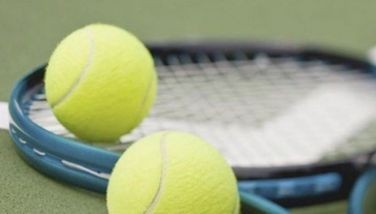Remembering Rogelio LaO

It’s not often that a sports figure is recognized by Ateneo and La Salle diehards with the same degree of reverence. Rogelio LaO was that exception. He was an Ateneo elementary graduate, made it to the All-State selection as a high school basketball player at the Jesuit institution Gonzaga University in Washington, went to the Sacred Heart Major Seminary in Novaliches with best friend Fr. James Reuter, taught Philosophy and Spanish at La Salle, coached the La Salle varsity to NCAA basketball titles in the juniors and seniors divisions, served as NCAA president and produced sons who won honors for both La Salle and Ateneo.
LaO passed away in 1992 at the age of 77, leaving a legacy as a sports disciplinarian with an uncompromising work ethic. Two sons Louie and Gabby played varsity football for Ateneo while another son Julep was a star goalkeeper at La Salle and the national team and still another son Cooey played varsity tennis with the Green Archers. LaO’s brother Simon was a Blue Eagle cager and football player in the pre-World War II era.
LaO studied a year in elementary at La Salle but finished his grade school at Ateneo. He went on to play high school basketball at Gonzaga whose NCAA Division I program later delivered NBA guard John Stockton. LaO was named to the All-State mythical team as a Gonzaga standout and moved to Georgetown, another Jesuit institution, after high school graduation. Since freshmen weren’t eligible to play for the varsity then, LaO sat out his first year at Georgetown. Then, he heard a calling and returned to Manila, joining the Jesuits’ Sacred Heart Major Seminary with Reuter. LaO, however, didn’t pursue the priesthood. In 1946, he was with the San Beda faculty teaching English and Drama and two years later, became a professor at La Salle. When Chito Calvo stepped down as La Salle varsity basketball coach, LaO was tapped as his replacement. LaO became coach of the junior and senior squads and took both teams to the NCAA throne.
* * *
In 1958, LaO was named coach Tito Eduque’s assistant with the Philippine team at the Asian Games. That same year, LaO piloted La Salle to fourth place in the National Open behind powerhouse clubs Yco, 7-Up and Yellow Taxi. One of LaO’s highlight achievements was delivering the 1949 National Open championship to La Salle. Throughout his career at La Salle, LaO remained close friends with Fr. Reuter and another basketball-loving Jesuit Fr. James Donelan. In 1963, LaO left La Salle to accept an invitation from Benny Toda to work at Philippine Airlines.
It’s interesting that LaO’s sons had divided school loyalties. Louie, for instance, combined forces with three other former La Sallians Bobong Velez, Celso Lobregat and Bertie Lim under coach Louie Javellana, also a former La Sallian, to power Ateneo over the Green Archers for the NCAA football seniors title in 1968. Louie was Ateneo’s goalkeeper and went up against his own brother Gabby who was La Salle’s tender. Two of La Salle’s mainstays were Raffy Esteva and Freddie Xerez-Burgos. Gabby would later enroll at Ateneo. Louie candidly admitted that the reason why Gabby and he left La Salle to move to Ateneo was because of poor grades.
Just like his father, Louie has close friends from both Taft Avenue and Loyola Heights and is well-respected as a professional regardless of school affiliation. It’s the same thing with his brother Gabby who now runs a successful rodeo and Wild West-inspired town at Clark in Angeles City.
* * *
Louie said what made his father such a legend in sports wasn’t only his success as a champion coach but as a man of principles. “La Salle offered no scholarships to players at the time,” said Louie. “Teams were formed via tryouts from the student population. In addition, players had to maintain reasonable academic grades to qualify. If you speak with many of those who played for La Salle during those days, you will discover they were a special class of athlete. My father sincerely believed that winning was not the most important goal in basketball. It was really how one played the game. As a player, you were expected to play your heart out, to the best of your ability but always behaving responsibly on the court. The Green Archers were always an example of fair play. Those La Salle players who resorted to dirty tactics quickly found themselves sitting on the bench. It did not matter who you were and how many points you scored. As a result, La Salle sometimes lost important games and championships. However, his teams were always among the most admired in the entire country. He believed that athletics builds character and prepares individuals for the larger game of life. Prepare well, do your best, be disciplined and always play fair and square. Winning is a bonus but it is not what is most important in sport.”
Among the players who blossomed under LaO in the late ‘40s were Jose Mari Mendieta, Eddie Decena, Manolet Araneta, Ramoncito Campos and Eduque. In the ‘50s, LaO’s senior stars included Martin Urra, Rene Wassmer, Nonggoy Hernaez, Henry Ferraren, Kurt Bachmann, Doming Sevillano, Joe Zubiri and Joe Laganson. Some of his outstanding junior players were Butch Catala, Anthony Trillo, Billy Manotoc and Vince Misa.
“Today, many former La Salle players look back at their days with coach LaO and now fully understand what his objective was,” said Louie. “Many Green Archers now serve as role models for all of us. They’re our inspiration as Christian gentlemen.”
- Latest
- Trending



























